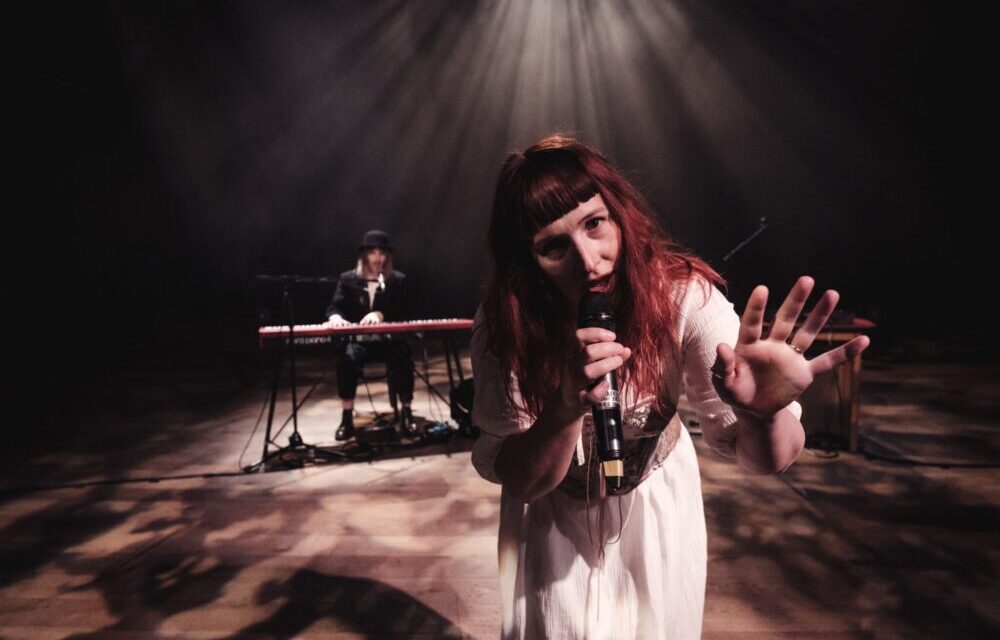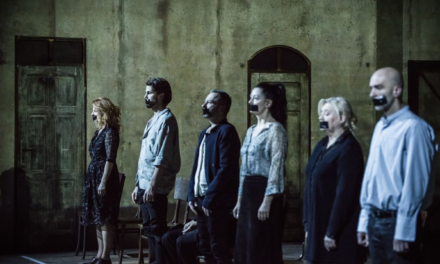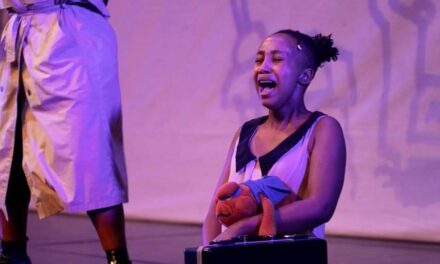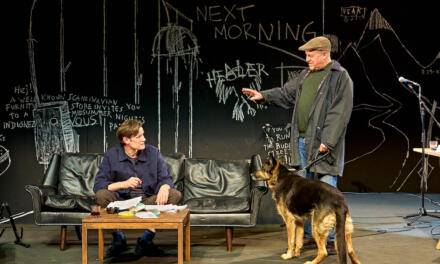Imagine you suffered terrible injustices that in your day and age were just the norm, that your devotion to your calling meant you entered history as a passive victim and not as an agent in your own right, and that some 170 years later someone came along and told the world the truth about you. And that they did it with talent and humor and beauty and joy and heart-wrenching empathy. This is what RashDash does for Lizzie Siddal, a lesser known artist in her own right, but immortalized as the model for others’ works, including, most famously, the pre-Raphaelite John Everett Millais’s Ophelia.
The show – not the first to tackle the troubled romance between Siddal and poet/painter Dante Gabriel Rossetti – is packed with jaw-dropping factual detail concerning the tragic fate of this muse and later wife who died at the age of 33, depressed and addicted to laudanum which she was originally given to treat the cold she’d contracted when posing for Millais in a bath in the middle of winter some ten years previously.
The piece triangulates the themes of love, art and legacy and is performed as a two-hander by co-creators Abbi Greenland and Beckie Wilkie, singing and sparring, satirizing and occasionally soloing (Greenland as a dancer and Wilkie as a musician) their way through this theatrical sensation. Their performance is inspired, exciting and highly accomplished whizzing by at such speed it immediately makes you want to rewind for all the nuances you’ve just missed. Performed in the round with just two keyboards for the set, this is a piece whose rich imagery is all contained in the speech and sound, all fleeting and forming only in your imagination. The audience is on fire too, swiftly moved by the music and the emotional content, and on the night I saw it, one man was so completely enraptured by finding out what theatre can do, he did not want to leave at the end.

RashDash: Look at Me, Don’t Look at Me at Paines Plough Roundabout. Press photo.
That said, this is a piece that does not spare men. At one of its smartest moments, it gives Rossetti an opportunity to explain himself for all his toxic narcissism that led him to abuse his muse with infidelities, withdrawal of formal commitment, and eventually with exhumation several years after her death in order to recover the handwritten poetry he had buried with her initially stricken by bereavement. At this point he speaks in the words of the various men recently responding to #MeToo allegations against them. All very familiar words, platitudes, protestations and half-hearted apologies which in a moment of intimate frankness between the two protagonists here translate as – you are never remembered for being a nice person the way you are remembered for your art.
The piece brims with poetry and quotable lines, not only by various British pre-Raphaelites, but primarily by RashDash themselves whose work also makes the point that in order to address issues of moral justice, it is necessary to find and deploy the right words. And sometimes this process can take more than a hundred years.
Fans of the company will fondly remember their long track record of pushing the boundaries of what theatre, music and dance can do to raise issues, redress gender imbalance and amplify voices that have been stifled. They have repurposed fairy stories, dealt with pornography and tackled Chekhov, all with inimitable creative flair, political determination and contagious glee. Their latest offering certainly pushes their legacy further in new ways as it opens at the Paines Plough Roundabout tent currently in Slade Gardens in Brixton for ten days with a full program of events to end the summer on a high note. With the theatre wonder that is RashDash in their repertoire, this sort of exuberant finale is nothing short of certain.
This post was written by the author in their personal capacity.The opinions expressed in this article are the author’s own and do not reflect the view of The Theatre Times, their staff or collaborators.
This post was written by Duška Radosavljević.
The views expressed here belong to the author and do not necessarily reflect our views and opinions.


















